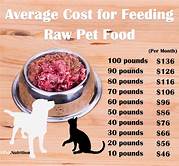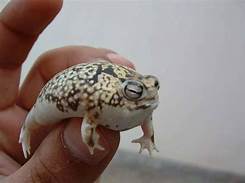Do Dogs Get Depressed When Another Pet Dies?
The death of a beloved pet can be a devastating experience for both humans and animals alike. Dogs, in particular, are known for their strong attachments to their owners and other pets in the household. So, it's no surprise that they may experience a range of emotions when another pet dies, including depression.

Signs of Depression in Dogs
Recognizing the signs of depression in dogs can be challenging, as they may not always be obvious or easy to interpret. However, some common signs to look out for include:
1. Changes in Behavior: A depressed dog may become withdrawn, lethargic, or less playful than usual. They may also lose interest in activities they once enjoyed, such as eating, going for walks, or playing fetch.
2. Changes in Appetite: Some dogs may experience a decrease in appetite or may stop eating altogether. Conversely, others may overeat as a way to cope with their grief.
3. Changes in Sleep Patterns: Depressed dogs may sleep more or less than usual. They may also have difficulty settling down or staying asleep.
4. Behavioral Issues: Some dogs may exhibit behavioral issues, such as destructive chewing, barking excessively, or house soiling, as a way to express their distress.
How to Help a Depressed Dog
If you suspect that your dog is depressed, there are several things you can do to help them cope with their grief:
1. Provide Extra Attention and Affection: Dogs need extra love and support during times of loss. Spend more time with your dog, cuddle them, and offer them plenty of verbal reassurance.
2. Maintain a Routine: Dogs thrive on routine, and a disruption in their daily schedule can worsen their depression. Try to stick to your dog's regular feeding, walking, and playtime routines as much as possible.
3. Introduce New Activities: To help your dog overcome their grief, introduce new activities that they can enjoy and focus on. This could include taking them for hikes, playing interactive games, or enrolling them in a dog training class.
4. Seek Professional Help: If your dog's depression is severe or persists for more than a few weeks, it's important to seek professional help from a veterinarian or animal behaviorist. They can provide tailored guidance and treatment options to help your dog cope with their loss.
Preventing Depression in Dogs After the Death of a Pet
While it's impossible to completely prevent depression in dogs after the death of a pet, there are steps you can take to reduce the risk:
1. Prepare Your Dog for the Loss: If you know that your pet is nearing the end of their life, gradually introduce your dog to the idea of their absence. This could involve spending less time with them or having them stay with a friend or family member for a few days.
2. Create a Supportive Environment: Ensure your dog has a safe and comfortable place to grieve. Provide them with plenty of toys, blankets, and other familiar items that remind them of their lost companion.
3. Consider Getting Another Pet: While this is not a decision to be made lightly, getting another pet can sometimes help a grieving dog overcome their depression. However, it's important to wait until your dog has had sufficient time to grieve before introducing a new pet into the household.
Remember, the death of a pet is a significant loss for both humans and animals. By being attuned to your dog's emotional needs and providing them with the support they need, you can help them cope with their grief and move forward.
Declaration: All article resources on this website, unless otherwise specified or labeled, are collected from online resources. If the content on this website infringes on the legitimate rights and interests of the original author, you can contact this website to delete it.






